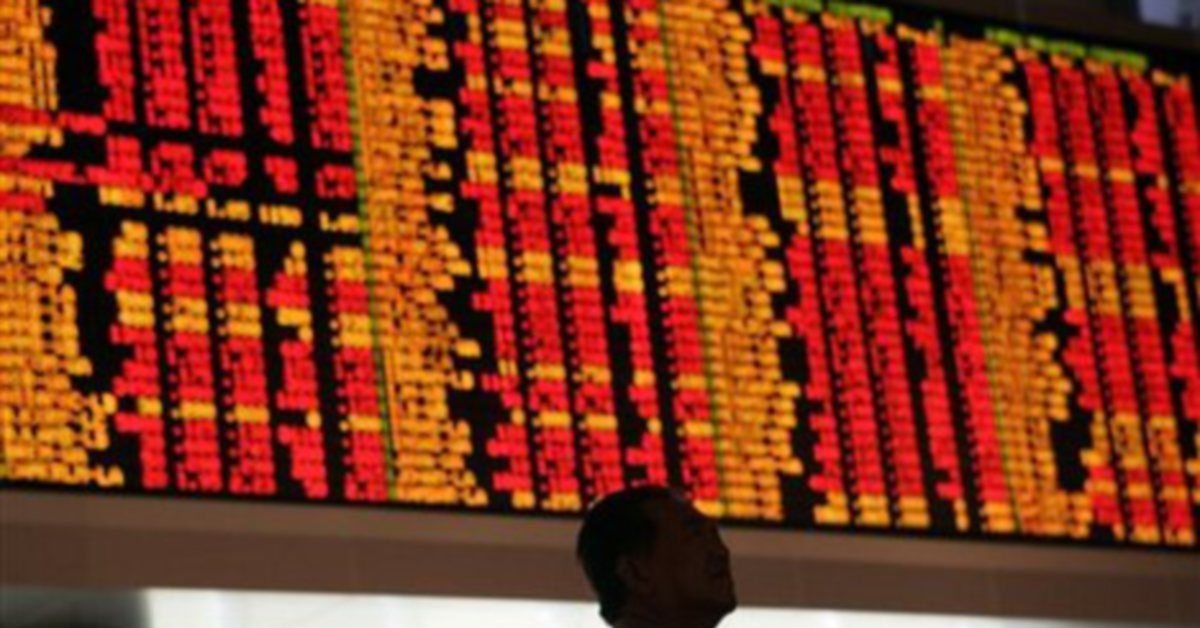FTSE4Good Bursa Malaysia (F4GBM) Index: A Company Guide – As expectations around ESG grow more sophisticated, Malaysian listed companies face increased scrutiny, not only from regulators and stakeholders but also from investors who integrate ESG performance directly into their risk assessment and capital allocation models. For companies seeking to remain competitive, qualifying for the FTSE4Good Bursa Malaysia Index (F4GBM) is no longer a matter of prestige but a strategic imperative.
To understand what makes ESG ratings like FTSE4Good so critical, and how they fit into a broader investment context, see What Sustainable Companies Need to Know About FTSE4Good Index Series. This article decodes scoring methodology and its implications for Malaysian corporates.
FTSE4Good Bursa Malaysia is not simply a sustainability benchmark. It signals to the market that a company meets international standards on ESG risk management, disclosure, and resilience. Many boards now ask not whether ESG matters but how to gain credible, measurable recognition for it.
What is the FTSE4Good Bursa Malaysia Index
The FTSE4Good Bursa Malaysia (F4GBM) Index is a stock index jointly developed by FTSE Russell and Bursa Malaysia to identify Malaysian companies with strong environmental, social, and governance (ESG) practices. Launched in 2014, it selects constituents from the FTSE Bursa Malaysia EMAS Index based on rigorous ESG ratings, requiring a minimum score of 2.9 out of 5. The index is reviewed semi-annually and excludes companies involved in tobacco, weapons, or significant ESG controversies, supporting investors seeking responsible Malaysian equities.
Understanding the FTSE4Good Bursa Malaysia (F4GBM) Index
Bursa Malaysia and FTSE Russell launched the FTSE4Good Bursa Malaysia Index in 2014 as part of a broader initiative to promote ESG integration in the Malaysian capital market. Jointly developed by FTSE Russell and Bursa Malaysia, the index identifies companies with strong ESG practices from the broader FTSE Bursa Malaysia EMAS Index, which captures about 98% of Bursa Malaysia’s full market capitalisation.

Beyond being a list of high-performing companies, the index is a practical tool for investors integrating ESG criteria into their portfolio strategies. It helps institutional investors screen for responsible Malaysian equities, benchmark ESG-related funds, and assess the sustainability performance of individual companies. When listed companies join the index, they gain tangible public recognition and a reputational advantage, signalling their alignment with international ESG standards to the market.
More than just a symbol of achievement, the index promotes a consistent and structured approach to sustainability reporting. Companies included in the index are typically those that have taken steps to publish robust ESG disclosures, respond to emerging risks, and demonstrate improvements in performance on material sustainability issues.
In 2021, Bursa Malaysia introduced the Shariah-compliant FTSE4Good Bursa Malaysia Shariah Index (F4GBMS) to cater to investors seeking alignment with Islamic finance principles and ESG (Environmental, Social, and Governance) performance.
How ESG Scores Are Measured
At the heart of the index is the FTSE Russell ESG Ratings model, a transparent, rules-based system that assesses over 260 companies on the Main Market. Ratings are based on:
- Publicly available disclosures,
- A company’s exposure to key ESG risks,
- And the quality of their response to those risks.
The ratings employ a materiality-weighted approach, which assigns greater weight to ESG issues most relevant to the company’s sector. For instance, evaluators focus more on carbon emissions and energy efficiency when assessing a logistics firm. At the same time, they emphasise governance structures and customer data protection when evaluating a financial services company.
For practical tips on boosting your ESG score and standing out against sector peers, don’t miss How to Get a Good ESG Rating for Listed Companies in Malaysia.
Scores are then aggregated into three pillars: Environmental, Social and Governance and presented on a scale of 0 to 5. The more exposed a company is to ESG risk, the more is expected of it.
ESG Score Required to Qualify FTSE4Good Bursa Malaysia
To be included in the FTSE4Good Bursa Malaysia Index, a company must:
- Be listed on the Main Market of Bursa Malaysia,
- Be a constituent of the FTSE Bursa Malaysia EMAS Index, and
- Achieve a minimum ESG rating of 2.9 out of 5, as assessed by FTSE Russell.
This rating is not static. The index reassesses companies semiannually in June and December, removing those that fail to maintain performance or address emerging risks.
In addition to the ESG score, companies must also pass a set of exclusion criteria. These include:
- No involvement in tobacco or weapons manufacturing,
- No engagement in significant ESG controversies,
- Not being under regulatory distress (i.e. classified under PN17 or GN3 statuses).
Step-by-Step Guide to Meeting the Eligibility Criteria
To qualify for the F4GBM Index, a company must meet three technical criteria: Index eligibility, free float, and liquidity. Below is a simplified breakdown based on the FTSE Russell Ground Rules (sections 4.1–4.3):
Step 1: Make Sure You Are Listed on the Right Market
The index considers only companies listed on the Main Market. Companies listed on the ACE Market are not eligible for F4GBM, although they may be eligible for other FTSE Bursa indices.
Step 2: Confirm You Are Part of the FTSE Bursa Malaysia EMAS Index
The EMAS Index comprises all qualifying companies from Bursa Malaysia’s large, mid, and small-cap segments, excluding those that fall below the required thresholds for free float and liquidity (explained below).
Step 3: Maintain Minimum Free Float
Free float is the percentage of a company’s shares readily available for public trading.
- Your company must maintain a minimum free float of 15%.
- FTSE Russell calculates this using publicly available data and updates the weighting accordingly.
If your company’s free float falls below this threshold, the index will exclude it, regardless of its ESG performance.
Step 4: Meet Liquidity Requirements
Securities qualify when investors actively trade them on Bursa Malaysia, ensuring sufficient liquidity. This ensures that companies included in the index are investable on a large scale.
- FTSE Russell applies quantitative liquidity screens to assess this.
- Illiquid stocks, those that don’t meet trading frequency or volume benchmarks, are excluded.
Step 5: Pass the Business Activity and Controversy Screens
Even if a company meets the above requirements, it can be disqualified if it:
- Operates in excluded sectors (tobacco, weapons),
- Is listed under Practice Note 17 (PN17) or Guidance Note 3 (GN3),
- It faces material, unresolved ESG controversies, such as labour violations, corruption allegations, or significant environmental incidents.
After 12 months and removal from surveillance, companies delisted due to regulatory watchlists (PN17 or GN3) can seek re-entry.
Step 6: Achieve an ESG Rating of at Least 2.9
Finally, you must achieve an overall ESG rating of 2.9 or higher, as calculated by FTSE Russell’s proprietary model. This includes:
- Performance on over 300 ESG indicators,
- Assessment across 14 themes (e.g. climate change, biodiversity, human rights),
- A materiality-weighted score based on your company’s sector and size.
Note: This score is dynamic, and companies must demonstrate consistent, transparent, and proactive ESG practices to retain or improve it.
Maintaining and Improving Your Standing
Inclusion in the F4GBM Index requires ongoing achievement. Companies must actively maintain robust ESG disclosures and address emerging new risks.
To improve your standing, you should:
- Improve the quality and consistency of ESG disclosures,
- Focus on material risks specific to your sector,
- Benchmark against peers within your industry group,
- Align your reporting with global frameworks like TCFD, GRI, or SASB. Not certain which ESG framework fits best with your business and sector? Our in-depth comparison, Six Major ESG Frameworks You Need to Know: Which One is Right for You?, compares GRI, SASB, TCFD, and other leading standards for Malaysian companies.
- Consider third-party assurance of your sustainability data.
If you’re planning your first FTSE4Good-qualifying report or need to enhance disclosure to global standards, check out Malaysia’s Evolving ESG Report Creation, which covers everything from framework selection to audit preparation.
These steps help you stay in the index, build investor confidence, and prepare your organisation for future ESG regulations and expectations.
Getting into F4GBM Is a Strategic Advantage
The FTSE4Good Bursa Malaysia Index is more than just a signal to investors. It’s a structured framework for sustainable business. Companies that qualify show strong ESG performance and an ability to manage risk, respond to stakeholder demands, and drive long-term value.
And for those looking beyond just reporting towards official certification:
For a transparent roadmap on ESG certification requirements in Malaysia—vital for solidifying your long-term ESG reputation—read Malaysia’s ESG Certification Landscape: Standards and Certification Processes.
Get Support for ESG Disclosure and Strategy
If you’re unsure where your company stands or how to improve your ESG performance to meet index requirements, seek expert guidance. We have a comprehensive guide on ESG Strategy that you can learn from and implement. Kindly read the article here.
AsiaESG offers customised ESG advisory services and ESG training for companies seeking F4GBM inclusion. Our services include readiness assessments, ESG reporting strategy, investor-grade disclosure review, and internal capacity building. Whether you’re just starting or fine-tuning your ESG efforts, we can help align your initiatives with global standards and local benchmarks.
To keep up with how investor trends and opportunities are shaping the ESG landscape in Malaysia, see Rising ESG Investing Trends and Opportunities in Malaysia.
It’s not enough to say you take ESG seriously. F4GBM shows whether you meet the mark. The path is straightforward but requires commitment, transparency, and consistent performance. Is your company ready to meet the standards and earn recognition in the elusive F4GBM index?
For any enquiries or quotations about ESG Solutions, get in touch with our ESG Solutions department below:




